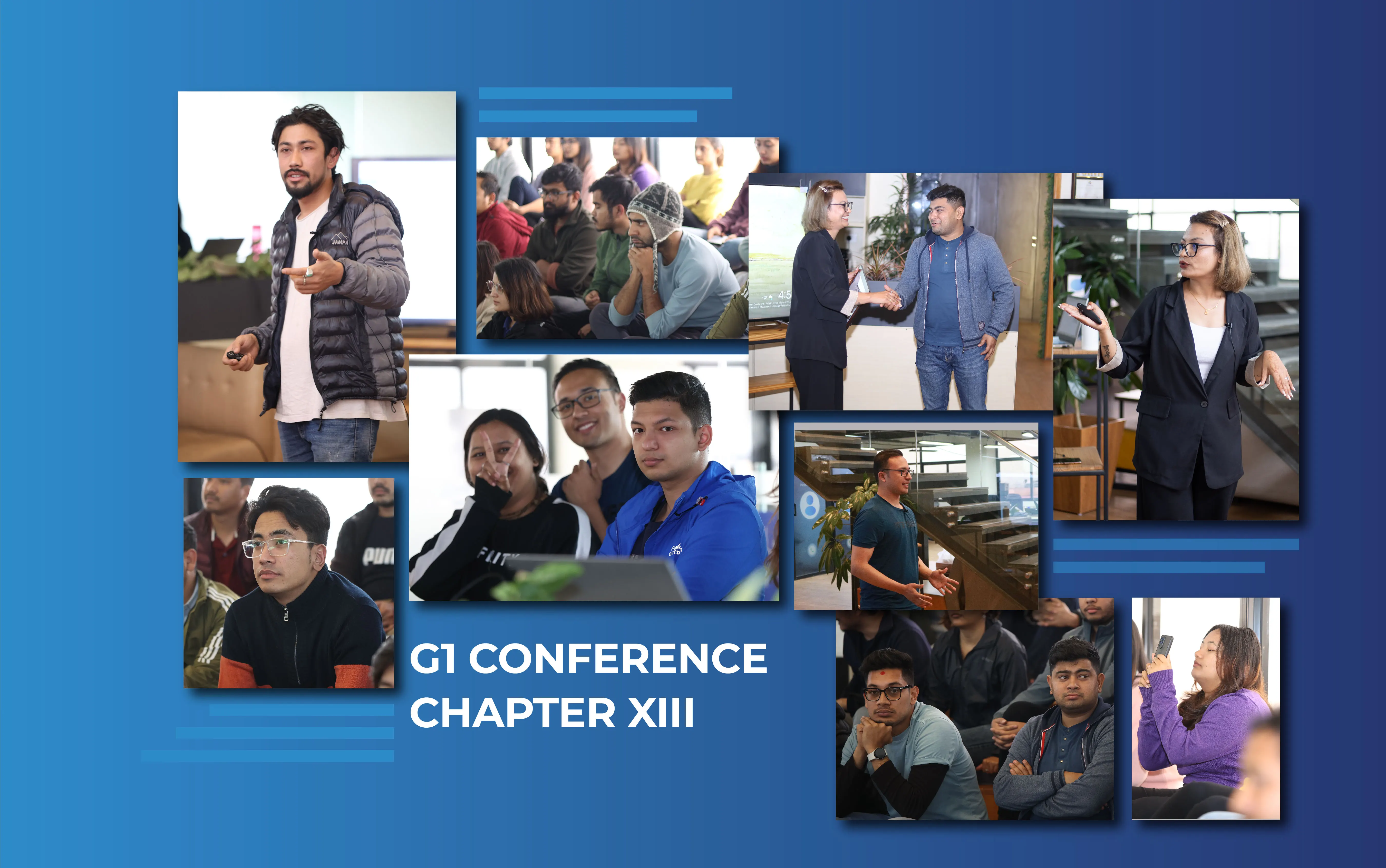Hey everyone!
We are excited to share with you about an event that we at Gurzu have been hosting for a while now – the G1 conference. After a short break, we brought back the G1 conference in an improved version.
We organized the latest chapter of the G1 conference a month back. And today, we want to tell you all about what G1 is. So, here is our retrospective on this conference and our future plans.
What is the G1 conference?
Keeping us with the latest tech trends is important for any engineering company like us. But with new developments happening so rapidly, it can be challenging to stay in the loop. However, there is no alternative to learning and sharing.
Gurzu values continuous learning and development as a company goal with high priority. We have been encouraging this culture of learning through various workshops, knowledge sharing sessions, bootcamps, and lunch-and-learn sessions.
The G1 conference is another strategy for knowledge management. Developers are always learning new things that can be beneficial for their teammates too. G1 is a proper platform where they can come forward to share that knowledge to everyone else.
Similarly, external speakers are also invited to share their knowledge about latest technological practices. So far, attendance to G1 has been open to our internal audience only.
History of G1 Conference
With the same spirit, we started the G1 conference back in June 2022 and continued it as a monthly event. Since then, we have invited many external and internal speakers to share their expertise at the G1 conference. We’ve had sessions on a variety of topics, including engineering management, mobile testing, women in leadership, lo-fi designs, and a lot more.
Even when the coronavirus pandemic was in full swing, we kept the spring of learning alive by conducting virtual sessions of this conference.

However, we took a break after organizing the 12th chapter in June 2022, mainly because we saw room for improvement in these events. These events could be made even more effective with some changes and some polishing. We took a good time to retrospect and plan on the benchmark we were trying to achieve.
After months of visualizing and planning, we finally announced the revamped G1 conference at the beginning of 2021. We finalized March 17th as the day for the 13th chapter and announced a call for papers.
Speakers and Topics
We had two internal speakers this time. Sony Tuladhar, our QA engineer, shared her insights on ‘Automation Testing.’ In a 45-minute-long speech, Sony covered topics such as ‘What is automation”, ‘Testing tools,’ ‘When to automate and when not to automate,’ ‘Automation testing tools,’ ‘What are we doing at Gurzu,’ ‘Future of testing in Gurzu.’ The QA session afterward complemented the speech nicely, and Sony was able to share more of her personal experiences.
Here are some key takeaways from the speech:
- Automation testing saves time for QA to do exploratory and UI testing.
- Performance testing is a must.
- Like there are different testing types, there are also various tools to do that.
- Automation testing is not a complete replacement for manual testing.
- User experience testing can not/ should not be automated.
- Developers play a big part in testing by completing unit testing to fix critical issues before the build reaches QA.
- Quality is the whole team’s responsibility, not just the QA team.
You can watch the full video with subtitles here.
Pratik Sangami, our front-end engineer, delved into “CSS 101”. In an hour-long speech, he delved into topics like ‘the artistic history of the web,’ ‘future of CSS,’ ‘ethics of web developers, and ‘the carbon footprint of websites. Here are some of the valuable takeaways from that speech:
- With CSS, web developers can control a web page’s layout, color, fonts, and other design elements, separate from the content itself.
- CSS allows for greater flexibility and consistency across a website, making it easier to maintain and update.
- CSS can help in SEO, the performance of app/site, UI/UX
- CSS architecture is essential for creating scalable, maintainable, and reusable CSS code.
- CSS frameworks can save time and effort by providing consistent styles and layouts that can be easily customized and reused across different projects.
- Web developers have both end-user-centric and environment-centric ethics.
- Your site should be accessible to everyone despite their physical abilities.
- Under environment-centric ethics, one crucial thing to consider is your website’s carbon footprint.
You can watch the full video with subtittles here.
The session was highly effective, with engagement from the audience who pitched in to share their experiences.
What’s next for the G1 conference?
Chapter 13 was an exciting new start for us. We were happy to see our colleagues actively participate in the discussions, ask questions, and share their experiences.
Going forward, we’ve decided to make the G1 conference a quarterly event at Gurzu. This will give us enough time to plan and prepare for each session and ensure that we maintain the quality of the event.
We also plan to bring experts from outside of Gurzu to share their insights with our team.
Conclusion
Overall, the G1 conference has been an excellent platform for learning, sharing, and growing as a team. We’re excited about what the future holds, and we can’t wait to see what insights and knowledge our colleagues and speakers will bring to the next event. Stay tuned for more updates!
.………………..
Gurzu is a diverse team of creatives, technologists, data scientists, security experts, and entrepreneurs helping world-class customers get to their markets quickly with high quality products built with modern software technologies.
Need a development team to turn your idea into reality? Get in touch with us or book a free consulting call!

